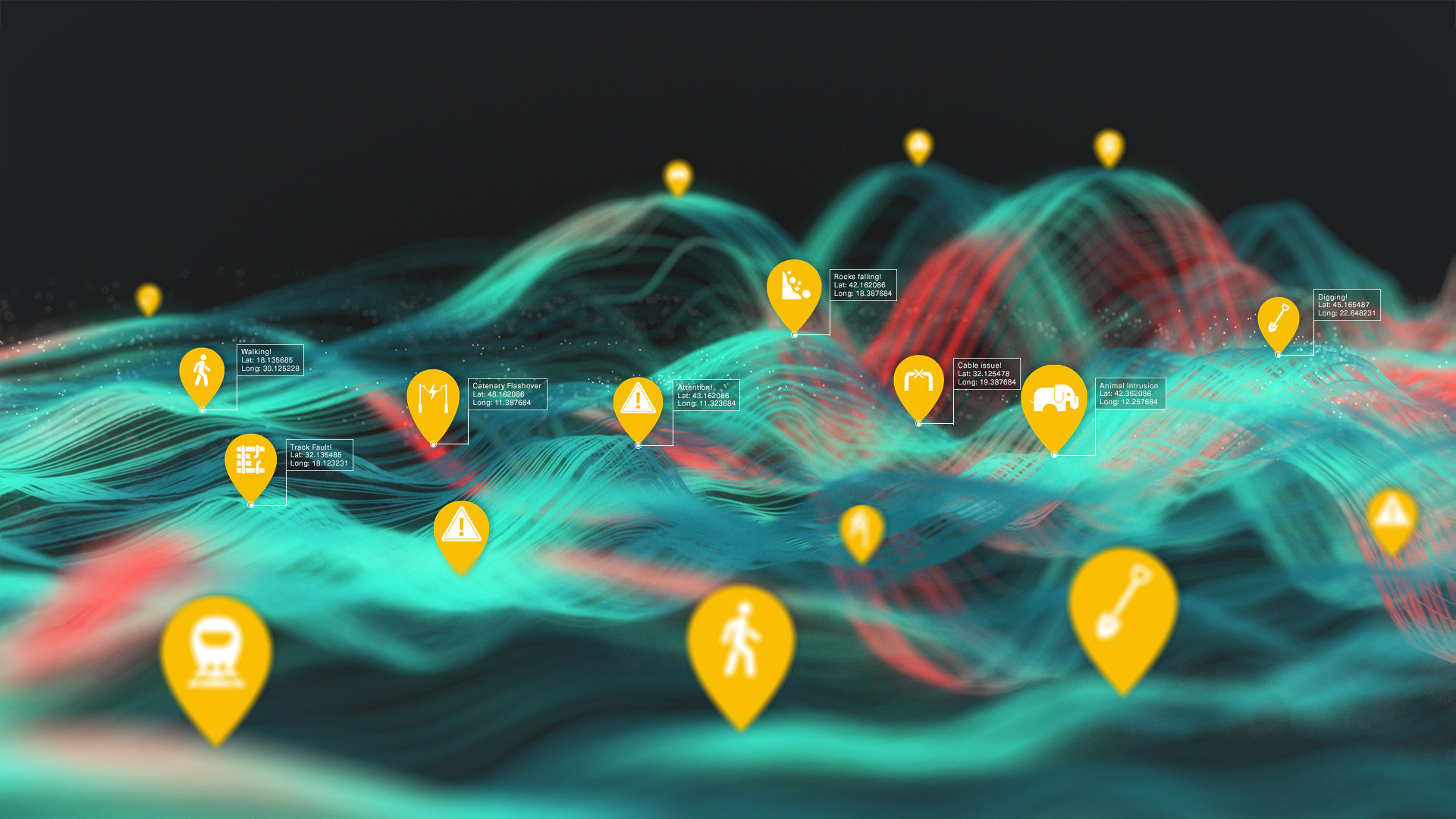Our Deep Desai, Managing Director and Executive Director of Business Development at Sensonic India, recently had the pleasure of being interviewed by India AI. He shared his valuable experiences and insights into Sensonic, and the sensor technology and AI industries.
First, tell us about your experience as Managing Director & Executive Director of Business Development at Sensonic.
Let's start with Sensonic. Sensonic is a deep-tech startup poised to revolutionize an industry that has existed for centuries. So, I have been with Sensonic since its inception. I was among the first executives onboarded after Sensonic was spun off from its parent organization - Frauscher. I've been with the same group of companies for seven years. In these seven years, my experiences have been rich with learnings at all levels of business that one can imagine. I have gone from being a Field and Application Specialist in a big corporation to an executive for a deep-tech startup.
As an MD or Exec Director, there is a lot of context switching that happens in a planned way but majorly in a reactive fashion. This experience has been immense, stressful, and blissful, as the dual role exposes me to the grind of getting a profitable, successful, and scalable business in India while ensuring that the company's global focus stays strong. It's exciting to be at the forefront of technological breakthroughs daily while working with and for some of the best minds out there in the industry.
How did you get started in AI and ML?
By education, I am an ECE engineer but by trade, I am an engineer. Having the exposure I had during my Masters in the UK, I saw a completely different breed of engineers who were engineers for the sheer joy of it. That changed my perspective on problem-solving altogether. In about 2014/2015, when I was working as an Algorithm Engineer, I first encountered Machine Learning and the magic it did compared to my MATLAB code. It made me dive deep into the subject matter but only at a very high level, as the topic is expansive. It wasn't until recently, since our current Chief AI Officer joined us in 2020 that I became wholly immersed and aware of AI as a subject and now as a whole ecosystem. I experienced the ecosystem as it exists today and the breakthroughs that can be achieved outside the current commercial realms.
What are your duties and responsibilities at Sensonic as an Executive Director - Business Development and a Managing Director?
Primarily, my responsibilities entail strategically guiding the global business to focus on the right customer profile and ensuring that the lead discovery to customer onboarding process goes as smoothly as possible. It is vital for solution scaling and customer satisfaction.
As an MD, I am responsible for everything that goes on locally in India daily. Still, I also have a vision of where the market will be, what skills will be, and what new developments and challenges may hinder our growth and customers' growth - then take appropriate small actions TODAY, including planning, investment, etc., to overcome those future-looking hurdles.
The artificial intelligence industry is becoming increasingly competitive. What strategies does Sensonic have in place to maintain its competitive edge?
Firstly, AI is not an industry. AI is a significantly advanced group of techniques and, simultaneously, at its nascency (see recent OpenAI DevDay). Today, as a business or an organization, AI is either a way to gain an advantage against competitors or a way of being. Most companies today are in the former category rather than the latter.
Globally, Sensonic has always had AI development rather than leveraging existing tools as one of the core strategy pillars. We have carefully assembled a team of experts and partnered with Dr. Sepp to facilitate this. Hochreiter at Johannes Kepler University, Austria to cement our position as the market leader in our core business field. Additionally, we have invested considerable time and effort into ensuring that we are building our own data corpus that facilitates the current AI regimes and speeds up new AI discovery. Today, our data corpus stands at 800 TB and is growing.
What were the initial challenges you faced in AI and ML? How did you overcome them?
Suppose I answer this with the perspective of being India-centric - Research skills. AI today has widespread applications at B2C, B2B, and D2C levels as long as the data is consumer or semi-scientific. The domain where we predominantly function is proprietary scientific data - so the general tools do not apply to us. It requires research skill sets that originate from academia and are brought into the commercial world. These skills exist in India, and this interview will help me reach those to start a new chapter for the Sensonic and AI journey in general in India.
What advice would you give to students and professionals interested in pursuing a vocation in artificial intelligence?
Pursuing an artificial intelligence (AI) career in India or anywhere worldwide is a promising and exciting path. AI rapidly evolves and has various applications across various sectors, such as healthcare, finance, education, and more. Here are some steps and advice for students and professionals in India interested in this field:
- Strong Foundation in Mathematics and Programming: AI heavily relies on mathematics, particularly linear algebra, probability, statistics, and calculus. Programming skills are essential, especially in Python, R, and Java. Start building these foundational skills early.
- Understand the Basics of AI and Machine Learning: Gain a solid understanding of AI and machine learning concepts. It includes understanding different types of learning (supervised, unsupervised, reinforcement learning), neural networks, natural language processing, and more.
- Online Courses and Specializations: There are numerous online platforms offering courses in AI and machine learning, such as Coursera, edX, Udacity, and others. Courses by top universities and organizations like Stanford, MIT, and Google can provide high-quality learning experiences.
- Advanced Degrees and Specialized Programs: Consider pursuing higher education in AI, such as a Master's or Ph.D. Indian institutions like IITs, IIITs, and IISc offer specialized programs in AI and related fields. These programs often provide a more in-depth understanding and opportunities for research.
- Practical Experience and Projects: Apply your knowledge by working on projects. It could be part of your coursework, internships, or personal projects. Practical experience is crucial in understanding real-world applications and challenges in AI.
- Participate in Competitions and Hackathons: Platforms like Kaggle offer AI and data science competitions. Participating in these can enhance your skills, help you learn new techniques, and build a competitive spirit.
- Networking and Community Involvement: Engage with the AI community through forums, social media groups, webinars, and conferences. Networking can lead to opportunities and collaborations.
- Stay Updated with the Latest Trends and Research: AI is a rapidly evolving field. Follow relevant journals, attend webinars and conferences, and keep up with the latest research and developments.
- Internships and Work Experience: Try to gain work experience through internships or entry-level positions in companies working in AI. This real-world experience is invaluable.
- Ethics and Responsible AI: Understand the ethical implications of AI. Privacy, bias, and ethical decision-making become increasingly crucial as AI integrates into society.
- Local Ecosystem and Government Initiatives: Be aware of the local AI ecosystem in India. The Indian government and various private sectors are increasingly investing in AI. Programs like NITI Aayog's AI initiatives offer multiple opportunities.
- Soft Skills: Develop problem-solving, critical thinking, and practical communication skills. These skills are essential in translating technical capabilities into practical solutions.
Remember, a career in AI is not just about technical skills. It's about how you apply these skills to solve real-world problems. Stay curious, keep learning, and be open to new challenges and opportunities.
What are the skills you expect from a fresher to join your organization?
We are a small company with big ambitions. Though we are partly covert about our breakthroughs - this signifies the personality we seek. Skills can be taught. Still, the attitude and approach about being customer-centric, being accountable as a team member rather than working in verticals, and having an insane fire in the belly to get things done while getting your own hands dirty is what I would primarily look for.
Of course, though skills can be taught, and I'll slightly contradict myself, we would currently be thrilled to have super-motivated AI researchers either in academia or have been at the forefront of AI research otherwise.
What are some of the most intriguing research articles and publications you have encountered while researching AI?
I have always been intrigued about Ethical AI and Bias in AI, so any workaround catches my eye immediately. But AI being used in and around niche or scientific data intrigues me a lot. It primarily requires understanding and applying mathematical concepts in a completely different ecosystem. Most of the papers and publications are too technical and deeply mathematical for my liking so I have a few books that make it useful for a broader audience:
1. "Life 3.0: Being Human in the Age of Artificial Intelligence" by Max Tegmark
2. "Superintelligence: Paths, Dangers, Strategies" by Nick Bostrom
3. "The Fourth Age: Smart Robots, Conscious Computers, and the Future of Humanity" by Byron Reese

Connect with Deep on LinkedIn.





